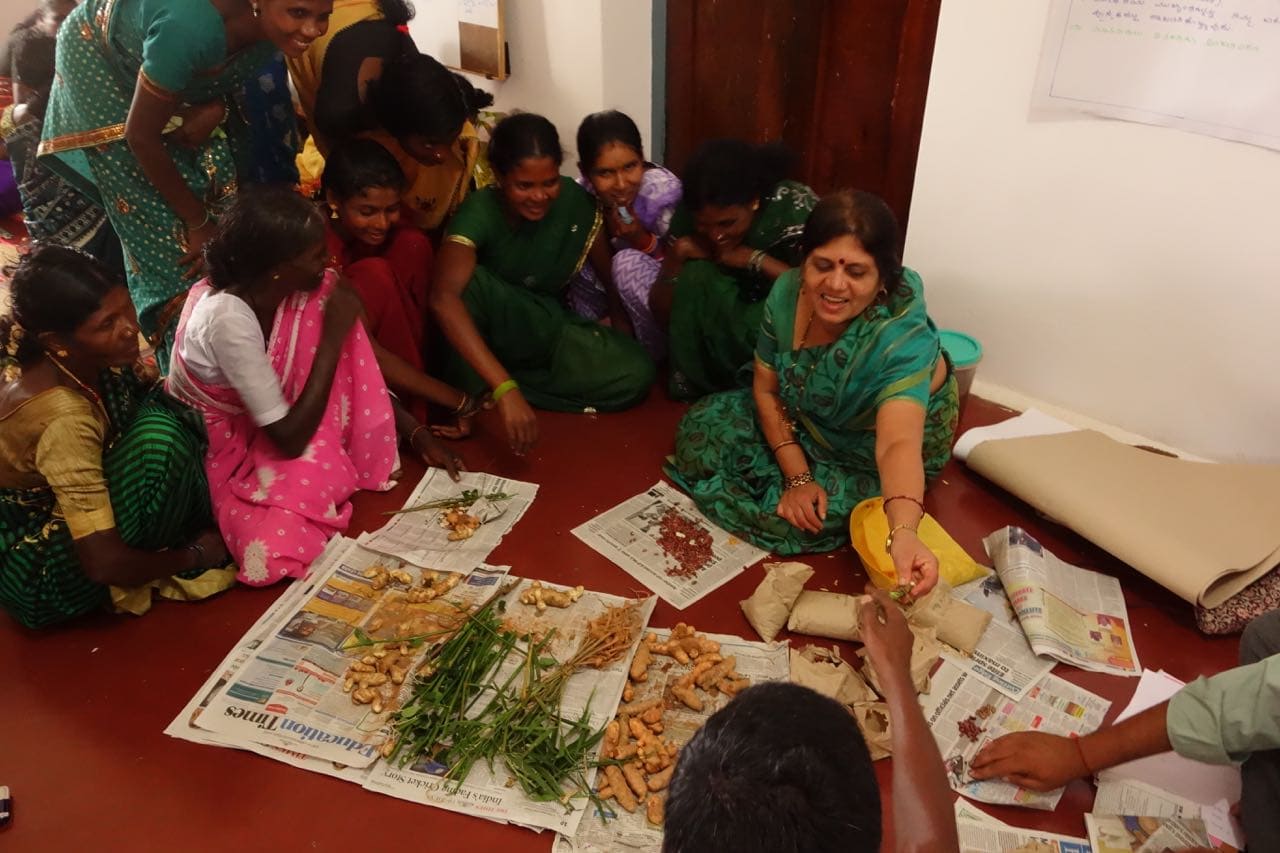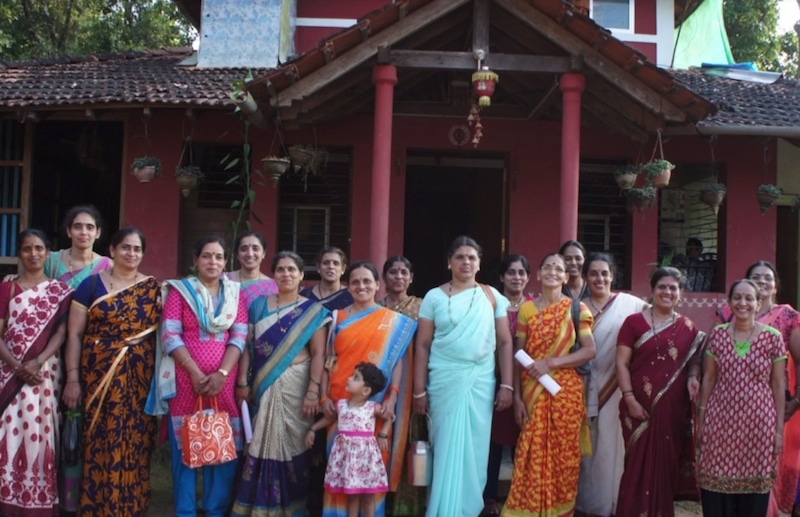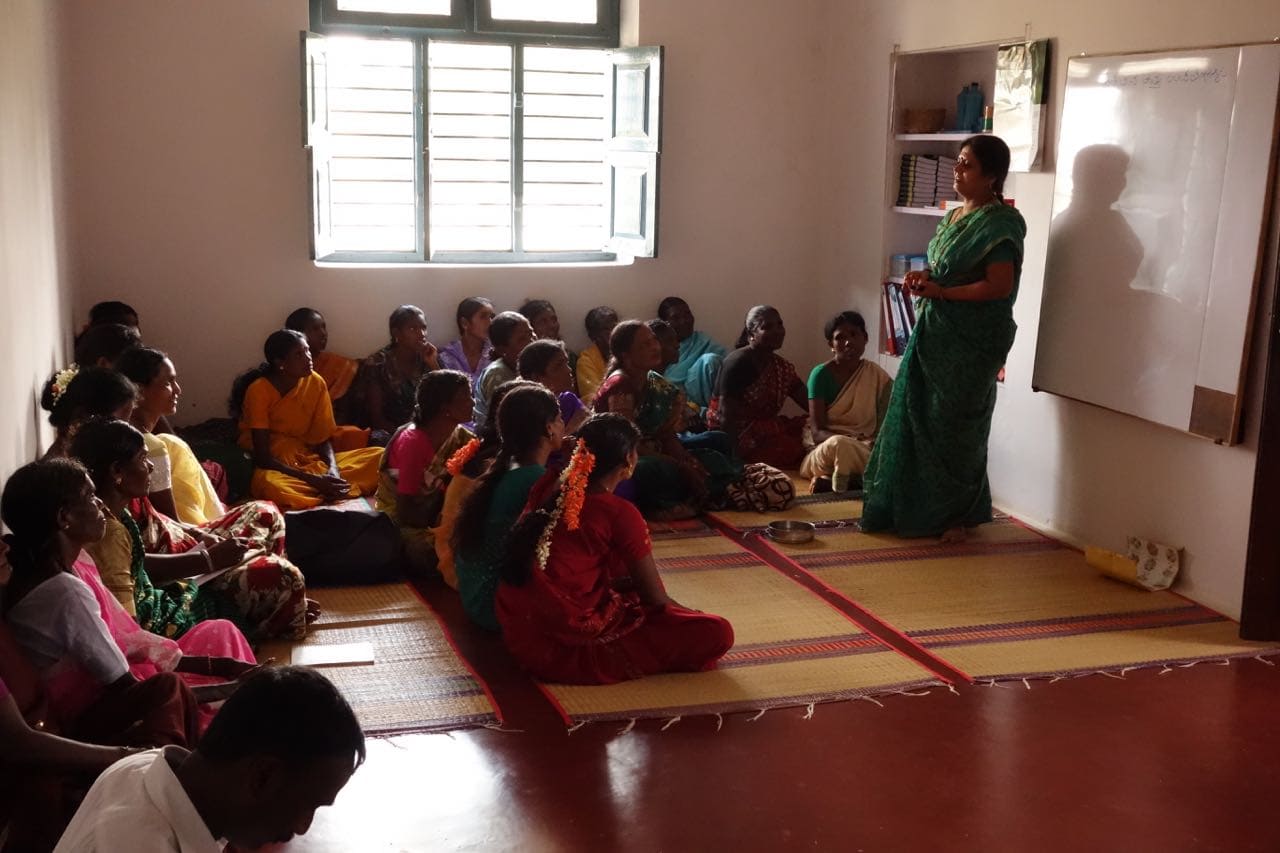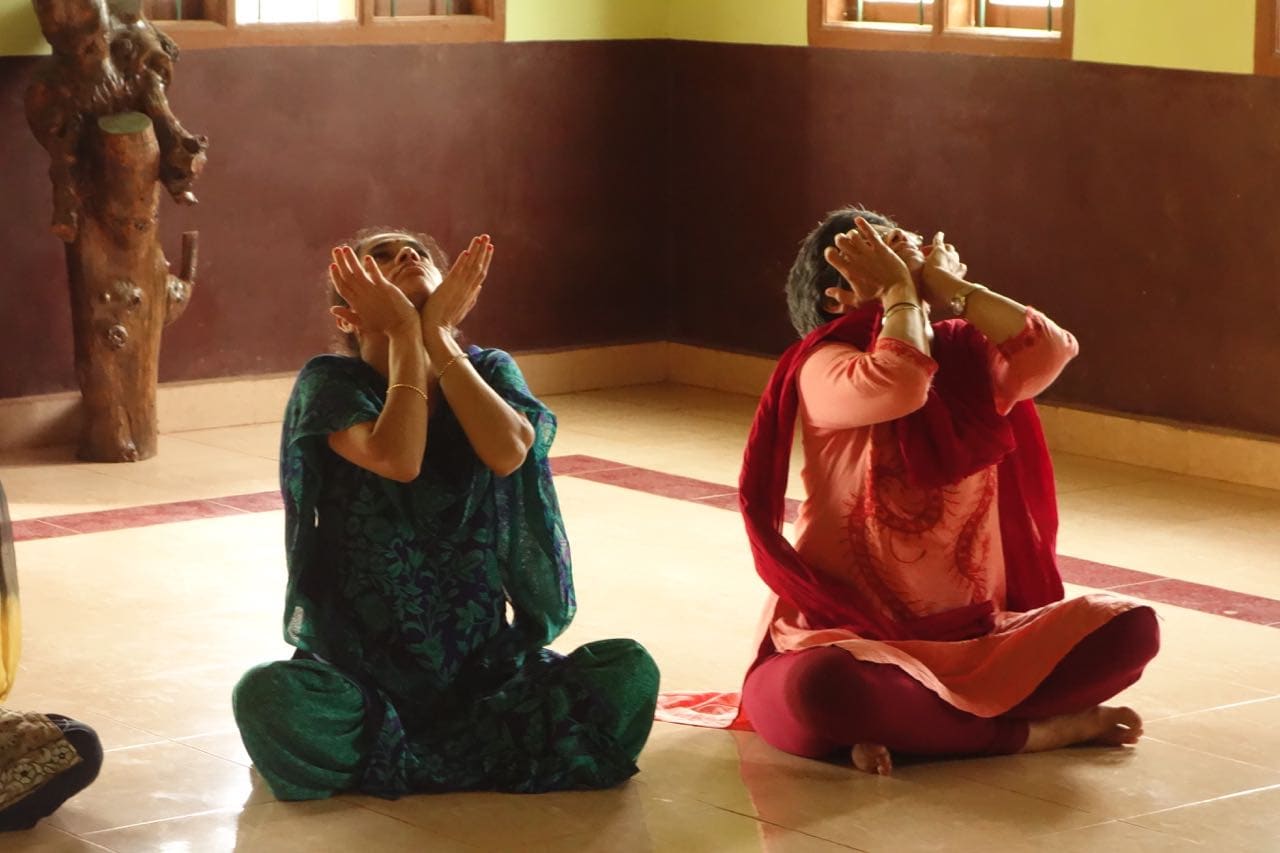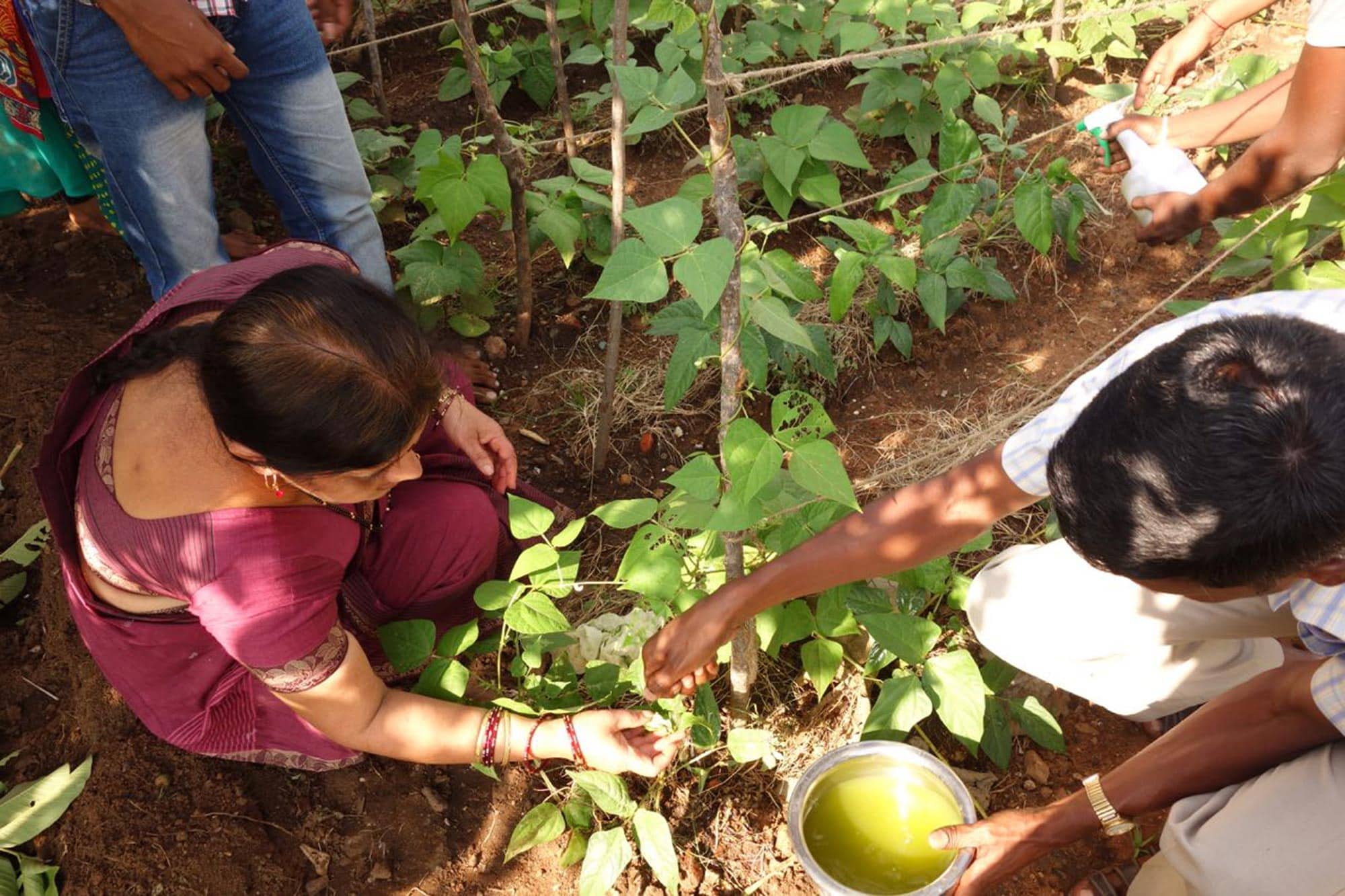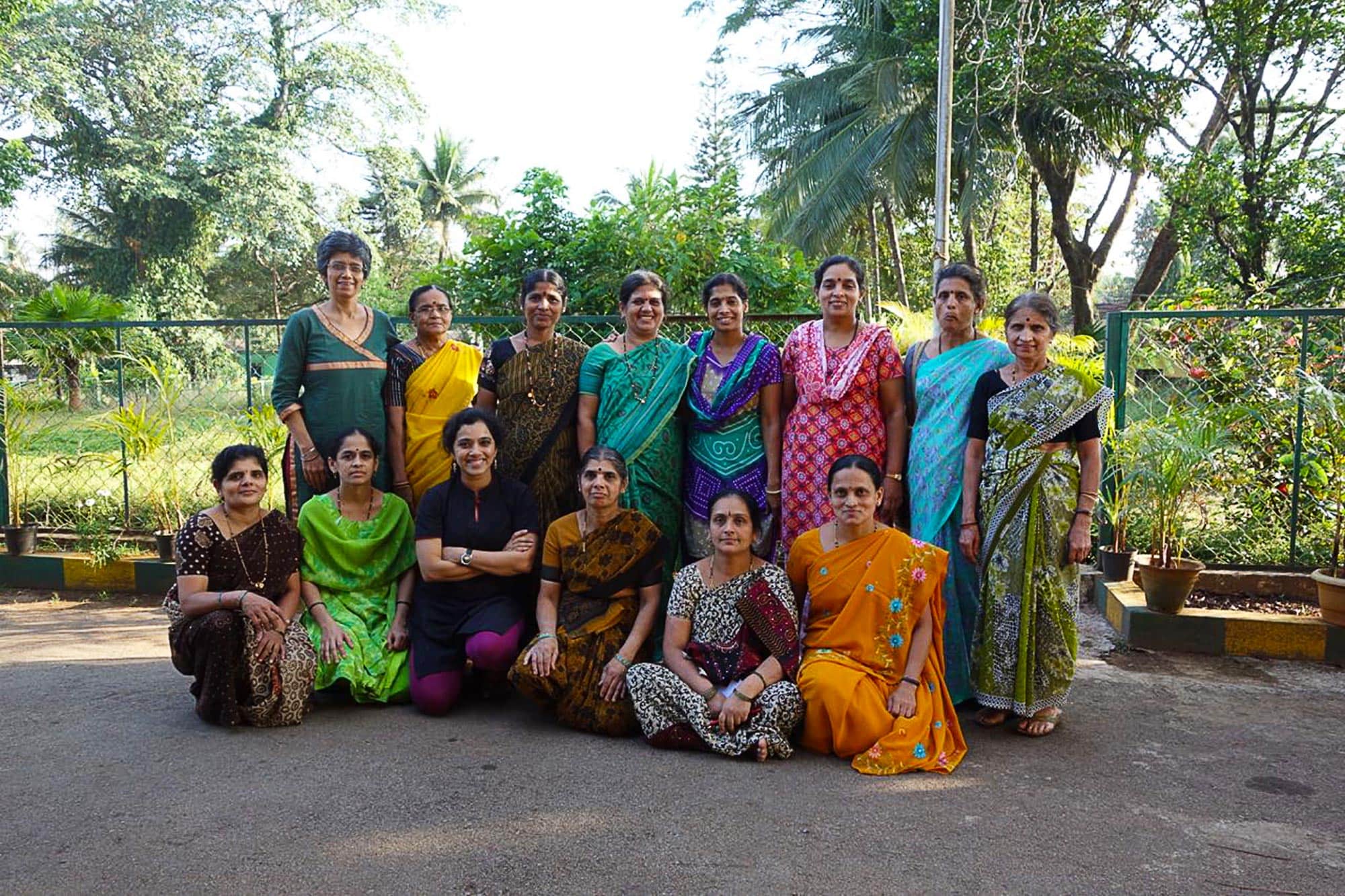Partner: Vanastree, based in Karnataka, India
Goal: Ensure seed and food sovereignty and the transfer of traditional knowledge in Karnataka State by supporting women to build and scale seed businesses, lead trainings to increase farm biodiversity and productivity, participate in demonstrations and exchanges, and build networks in their communities and beyond.
Impact: 15,000 people participating in regenerative farming with native seed; food supply more resilient to climate shocks. Over 4,000 women farmers employing regenerative farming practices to increase farm biodiversity, traditional seed saving, and women’s intergenerational agricultural knowledge in the region, thereby strengthening food security and community resilience to chemical farming pressures and climate changes.
Project Leaders and Highlights
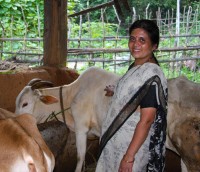
Manorama Joshi is a mother, wife and farmer in the Malnad region of Karnataka, India. She is also the spirit of local women’s agriculture and a seed leader in her community. Through her work with Vanastree, Manorama helps to support a peaceful seed revolution.

Sunita Rao is the Founder and Director of Vanastree. Sunita is an ecologist by training and has been living and working on a forest farm in the Malnad region of Karnataka in India since 2002. She was a Fulbright Fellow at the University of California, Santa Cruz in 2009 where she worked on agroecological issues. Her work includes: ethnoecology of forest home gardens in the Western Ghats; designing Learning for Life modules in formal and non-formal education landscapes; viability of nano-scale, sustainable livelihoods and enterprises; and conservation and community mobilization in gendered spaces.
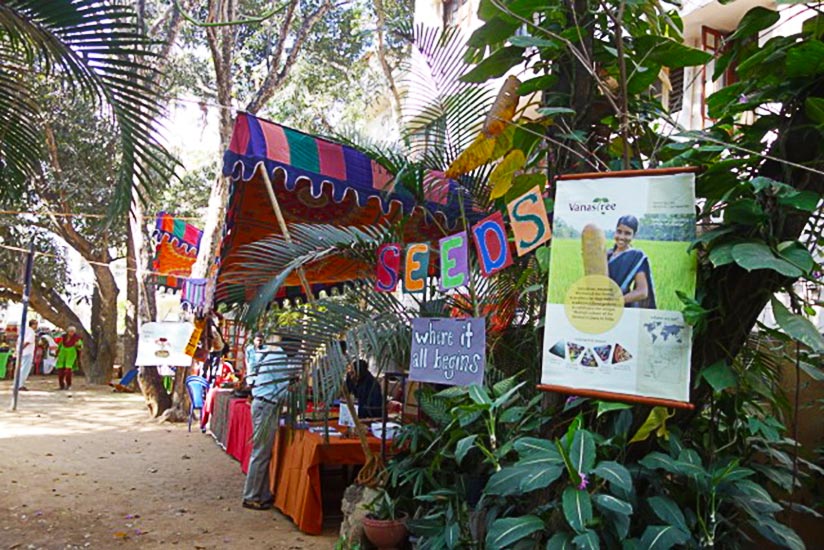
The Malnad Mela is a Seed Festival that is hosted by the women of Vanastree. It is a place to sell and exchange organic, local, seeds along with other products celebrating biodiversity

At a Glance
Women in South Asia have crop yields 20-40% lower than those farmed by men because they lack access to improved seeds, best practice and technologies, and markets.*
75% of the Western Ghats is unprotected and largely used in various ways for agriculture. Conserving the unprotected forests that serve as rest-stops in human-modified landscapes for the rainforest’s many moving parts, and pushing for a return to the long standing tradition of biodiversity-friendly agriculture are the most important tasks in the Western Ghats.*
Women are the backbone of the rural economy in developing countries and are responsible for 60-80% of food production. They also tend to be the most knowledgeable about crop varieties.*

"Seeds have no caste, creed, religion or gender. They are universal."
— MANORAMA JOSHI, VANASTREE

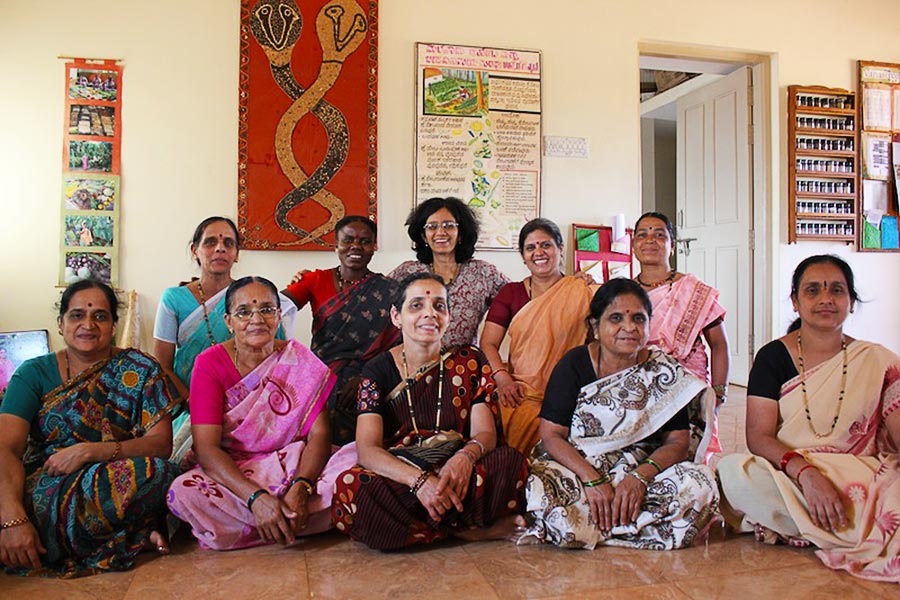
The Need
The Western Ghats region of Karnataka State is a hotspot of food system biodiversity, indigenous seed stocks and food forests that faces great threats. The intensification of chemical agriculture has been devastating to the region’s long history of plural, biodiversity-based, and ecologically sensitive agricultural and forestry practices. The changing and increasingly unpredictable climate has rendered the monsoons—one of the area’s most essential ecological events—unreliable. Animal and plant species that have sustained people through thousands of years of floods and droughts are in jeopardy of extinction and communities are increasingly vulnerable to hunger and poverty. As primary guardians of their families’ nutrition, forest gardens, and indigenous knowledge, women bear the brunt of this crisis.
The Project
The Western Ghats has a large number of forest home gardens that are critical in halting deforestation and species loss. Home gardens are repositories of biological diversity and therefore a source of food security, nutrition, medicine, and traditional knowledge. WEA’s partner is the Vanastree Collective, who has uplifted and supported small-scale food systems and the women who steward them for nearly 15 years.
WEA and Vanastree’s Seeds of Resilience Project, builds communities’ seed and food sovereignty, catalyzes intergenerational traditional knowledge sharing, and strengthens women’s leadership.
- Household Seed Saving. Rural women leaders participated in trainings to cultivate, store, and manage seeds for varietal purity and diversity. They will be supported to sell their traditional seed varieties to hundreds of farmers and to a centralized seed bank through self-managed, seed-saving micro-enterprises.
- Community Access to Seeds. Over 4,000 women farmers, their families, and community members accessd indigenous seed varieties through the 20 women seed savers and community seed banks and employed regenerative farming practices to strengthen food security and community resilience to chemical farming pressures and climate changes. The community Vanya Seed Bank increased the number of seed varieties it manages and sells by over 25%.
- Home Garden Biodiversity and Productivity. 120 women and 20 youth participated in trainings and in turn trained approximately 500 other women farmers in forest gardening practices. The trainings increased their knowledge of traditional regenerative agricultural practices, provided access to model home gardens, demonstrations, and women’s seed exchange events, and increased their access to high-quality, indigenous seed varieties with nutritional, medicinal and climate benefits.
- Intergenerational Knowledge Transfer. 200 additional women and youth participated in group activities, trainings and demonstrations in order to ripple knowledge of regenerative farming and seed saving throughout their communities. They also increased their self-confidence and capacity to be social, ecological, and economic leaders in their families and communities.
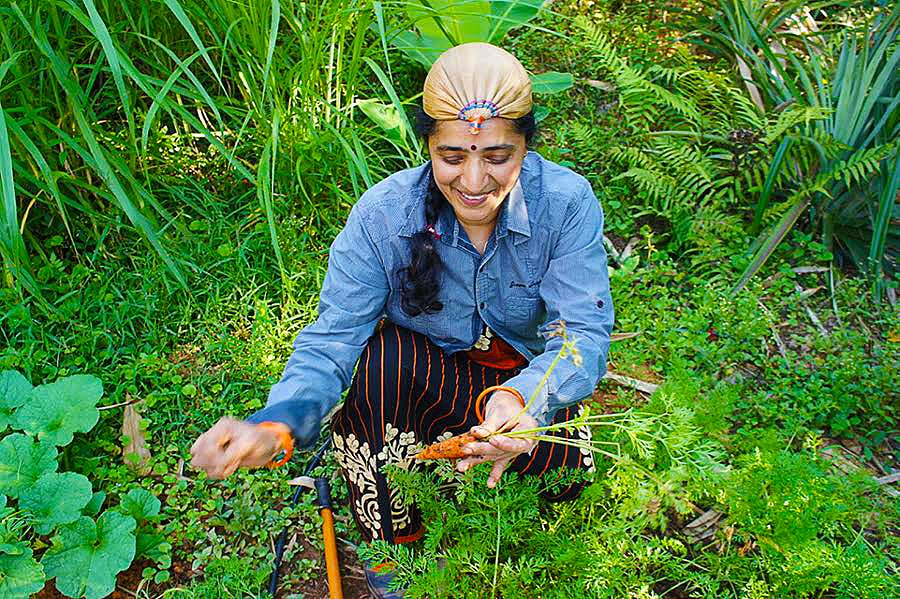
Impact
The rural women who participated in the training are seeing improvements in multiple aspects of their lives and communities thanks to the many components of the project.
- Seeds and Seed Banks: Improved methods at two seed banks, Sirsi and Chamarajanagarnot, became part of the project output. Each bank complement the other with the varieties, common systems of management and outreach to the local community and beyond.
- Highlights of the Seed Bank:
- 19 new seed varieties added to bank during 2016-17 (43% increase).
- 7 retail outlets stock seeds for sale (2 new added in current year).
- 74% of previous year’s sales already reached in the first six months of 2017-18 financial year.
- Increase in seed sales expected during 2017-18.
- Earnings increased for all seed savers by 32% and by 86% for the 23 select trainees.
Although there was no formal training session on seed saving techniques, at each of the group meetings, this topic was discussed in detail by the group, demonstrations done, doubts cleared, saved seeds examined and a feed back given. The more experienced seed savers helped out the others who were saving seeds sub-optimally. There was also a high level of information exchange since some were experienced master gardeners and very willing to share their deep knowledge.
- Land and Lens: A photography segment has blossomed as a creative new way to empower the female seed savers. Land and Lens helps to give others a glimpse into the life and work of seed savers.
- Leadership Retreat: Leadership workshops emphasized self-awareness and confidence to cross new thresholds including youth outreach, learning through participation in events and study tours, and encouraging reflexive thinking and action. Many of the women noted in interviews a couple of months after the program that they felt it had “opened many windows and doors” for them.
- Micro-Enterprise Training: This portion of the training touched on skills for home based production of seeds (and other products), bookkeeping and managing a cottage industry. Through the training, many of the women started maintaining records and looking at pricing in more detail.
- Germination Tests: These tests helped the participants feel confident in their research and know-how, as they saw their traditional heirloom seeds had strong germination power. The results were an average of over 60% germination rates.
- Garden Journal: A home garden journal/diary helped women gardeners document their knowledge and observations related to their small scale food gardens.
- Traveling Garden: The project began with the idea of having a central, experimental home garden space, however the concept of a “traveling garden” was brought to life instead. A garden Open Day was planned at Hudlumane village school with a display of seeds, posters and other materials arranged for students, parents and teachers. Almost all children said that their parents had home gardens, and parents were interested in taking home seeds. Events such as these are a good way for members to develop local leadership, for schools to get involved in food and seed sovereignty, and for the seed savers group to have impact over a larger area.

